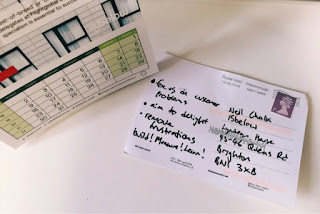CONFERENCE: The Lean Event, Brighton and Phocuswright Europe, Dublin 2016
I have been struggling to write a summary of The Lean Event and Phocuswright Europe as they both packed in so much content, I have so many notes to read through! Taking the two together it's clear to me that they are natural complements. Indeed Umesh Pandya's talk on "Learing to build wayfindr: independant travel for blind people" would not have been out of place at Phocuswright, just as Gary Morrison's afternoon keynote on Expedia Worldwide could have been a Lean Event session on lean in the enterprise. So i'll pick a couple of sessions from each to talk about.
From The Lean Event
There were so many good sessions over the two days, but I'll briefly talk about Jared Spool's keynote on "Building a winning UX strategy" for this insight on Innovation alone - innovation is the space between current experience and aspirational experience. The simplicity of looking at innovation as gap between frustration and aspiration/delight was quite surprising.
Jared also put forward the idea that roadmaps should focus on when we are going tackle customer problems not the technological solutions. He showed in using a journey map to show areas of frustration you can then target these areas and get them into the delightful zone.
I also chose this session as Jared also had a few examples from travel and airlines in America, so was of particular interest to me. There are so many systems and processes involved in taking a simple journey, especially one that has been disrupted, that the service design needs to consider the user expereince as a whole.
 As an added bonus The Lean Event had a table where you could write yourself some takeaway comments as a reminder. They then posted these 3 weeks later, as it turns out that was a good time after the conference to be reminded! Recent enough that you can remember what it means, but long enough back in your day job that you might need a nudge.
As an added bonus The Lean Event had a table where you could write yourself some takeaway comments as a reminder. They then posted these 3 weeks later, as it turns out that was a good time after the conference to be reminded! Recent enough that you can remember what it means, but long enough back in your day job that you might need a nudge.
Phocuswright Europe
Elevator pitch - Packaging golf tours dynamically - this solves the problem of time constraints and hassle for consumer and as a distribution platform for businesses. Using ther widget means everyone can become a golf tour operator - without human intervention or industry knowledge, so can concentrate on their core business.
This feels like it fails the feature vs startup test. The core business of OTAs is literally a superset of this feature, with this being just one "personalisation". The OTAs will have an advantage in the long run with greater reach, development resources and benefits of scale. Remember "OTAs are tech companies".
In a nutshell, the product scans through e-commerce sites and finds broken booking journeys to see where the problems with conversions could lurk. It scans pages to collect analytics info, rather than rely on tags in the link. Then compares which tags are there/missing/misconfigured. This runs as a SaaS platform to do the testing with no code to run on site.
What I liked about this pitch was that the CEO has brought her experience from being a marketing manager, and the pain of the kind of reports that she had available, then she has created a product to fill the gap. My opinion is that this is not quite the core business of the current providers and a complimentary product, so more than just a feature. this is even a product and service that a tracking provider or a large industry client like an OTA could use.
EDIT: Talking of features dressed up as products, after Phocuswright I became aware of an EU funded research project called EuTravel.This aims to a create multi-modal travel planning tool that seems just like Rome2Rio. After a further look at the project site I can see some science in there... however, mostly it appears to be subsidising competitors feature development. They could have worked with existing providers to collect data on usage and social change, if that's what they need, and I would've thought that this might be more cost effective. (As a bonus they could also have seen how different approaches of these partners changed things)
Further Reading
- Tendayi Viki - innovation in established companies - Pearson's Product Life Cycle
- I was introduced to Blob trees by Venetia Casely at lunch during The Lean Event, and found it interesting way of mapping feelings during a user journey
- With Booking.com passion search we are starting to get booking journeys that start the way people really investigate holidays
- Wayfindr - great project to help visual impared people get independance
- Every UX Leader Needs a Unique UX Strategy Playbook


Comments
Post a Comment